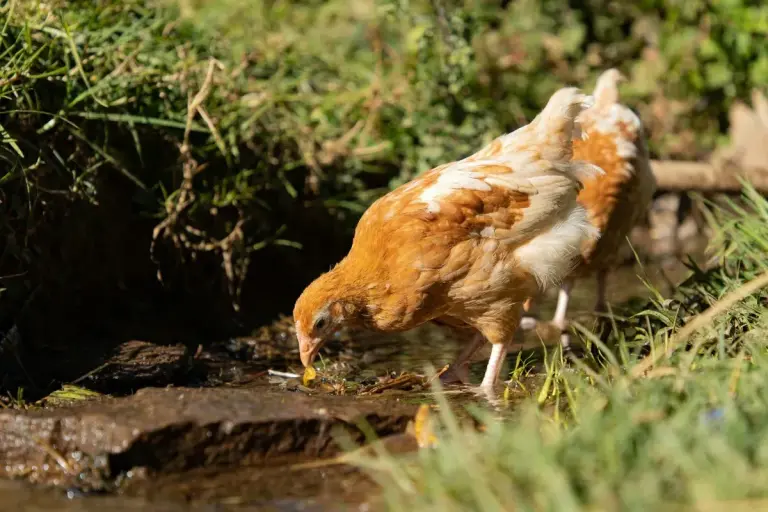What Does “Cage-Free” Really Mean? Understanding the Standard
When you see “Cage-Free” on an egg carton, it signifies a significant shift in animal husbandry. These eggs come from hens raised in spacious barns without the confinement of traditional cages. Unlike their caged counterparts, cage-free hens enjoy the freedom to move about freely, perch, nest, and fully extend their wings. This system is designed to provide a higher quality of life by adhering to globally recognized principles of animal welfare.
The Five Freedoms of Animal Welfare
The cage-free standard is built upon the foundation of the Five Freedoms, a benchmark for animal well-being developed by the UK’s Farm Animal Welfare Council in the 1960s. These freedoms are:
- Freedom from Hunger and Thirst: Ready access to fresh water and a diet that maintains full health and vigor.
- Freedom from Discomfort: An appropriate environment including shelter and a comfortable resting area.
- Freedom from Pain, Injury, or Disease: Prevention or rapid diagnosis and treatment through veterinary care.
- Freedom to Express Normal Behavior: Sufficient space, proper facilities, and the company of the animal’s own kind.
- Freedom from Fear and Distress: Conditions and treatment which avoid mental suffering.
The Gold Standard in Certification: The Role of American Humane
Not all cage-free labels are created equal. This is where third-party certifications become crucial. Founded in 1877, American Humane is the first national humane organization in the U.S. and a pioneer in farm animal welfare certification. Their seal on a product is a verified promise to consumers that the eggs meet rigorous, science-based standards.
The American Humane certification process is meticulous. It audits and verifies that farms provide adequate space, stringent health protocols, nutritious feed, and dignified treatment to the hens. For consumers, this seal on the packaging is a reliable symbol of international ethics, trust, and quality.
Why Choose Cage-Free Eggs? The Benefits Beyond the Shell
Opting for certified cage-free eggs is a conscious decision with multiple positive impacts. It’s a choice that aligns personal health and ethical values with broader industry and environmental goals.
Enhanced Animal Welfare
The primary benefit is the improved life for the hens. By allowing birds to engage in natural behaviors like dust-bathing, foraging, and socializing, cage-free systems significantly reduce animal stress and improve their overall well-being. A study by the University of Bristol found that non-cage systems offer clear welfare advantages over conventional cages.
Consumer Empowerment and Trust
For the first time in many markets, including Panama, consumers are being given a clear, certified choice. This empowers individuals to align their purchasing decisions with their values. The third-party certification provides transparency, building trust that the claims on the package are genuine and backed by rigorous oversight.
Driving Industry Innovation and Competitiveness
The introduction of certified cage-free eggs elevates the entire local poultry industry. It sets a new precedent for quality and ethical production, encouraging other producers to adopt higher welfare standards. This innovation positions countries like Panama as regional leaders in sustainable and humane agricultural practices, enhancing their competitiveness on the global stage.
The Rigorous Path to Certification
Achieving a certification like American Humane is not an overnight process. It typically involves over a year of intensive preparation. Producers must invest in infrastructure, redesign barns, and implement new animal care protocols. This is followed by comprehensive training for staff and independent, on-site audits that scrutinize everything from infrastructure and biosecurity to the direct observation of the hens’ welfare.
Answering Your Cage-Free Egg Questions
Are cage-free eggs the same as free-range or pasture-raised?
No, these terms are not interchangeable. While “cage-free” means hens are not in cages and can move freely within a barn, “free-range” typically requires that hens have some degree of outdoor access. “Pasture-raised” is often the highest standard, implying that hens spend a significant amount of time outdoors on pasture. Certified cage-free is a verified and excellent step above conventional caged systems.
Are cage-free eggs more nutritious?
Research on the nutritional differences is ongoing. Some studies suggest that cage-free eggs may have higher levels of omega-3 fatty acids and Vitamin D, likely due to the hens’ more varied diet and activity levels. However, all eggs are a excellent source of high-quality protein and essential vitamins.
Why are cage-free eggs often more expensive?
The higher cost reflects the increased operational expenses. Cage-free systems require more space per hen, specialized barn designs, and often more labor to manage the flock’s health and welfare effectively. The cost of the certification audit itself is also a factor. Consumers are effectively paying for the verified higher standard of animal care.
Making a Conscious Choice for a Better Food System
The availability of certified cage-free eggs represents a positive step forward in our food system. It’s an invitation to practice responsible consumption. By choosing products like these, you cast a vote for a more humane and transparent agricultural industry. It’s a powerful way to support animal welfare, choose a high-quality product, and contribute to a more conscious and sustainable food chain for everyone.



